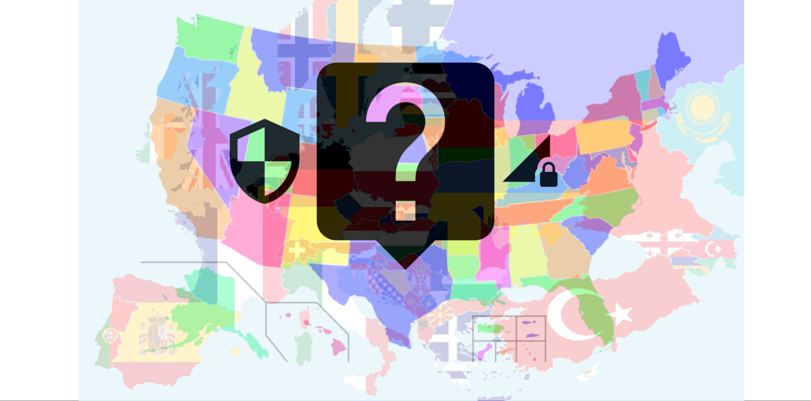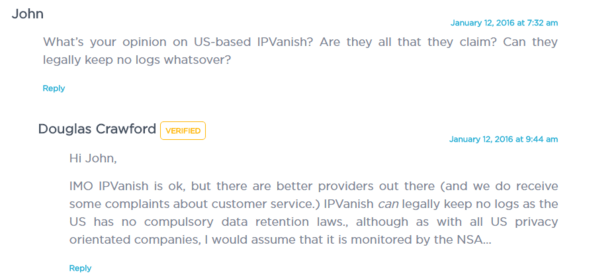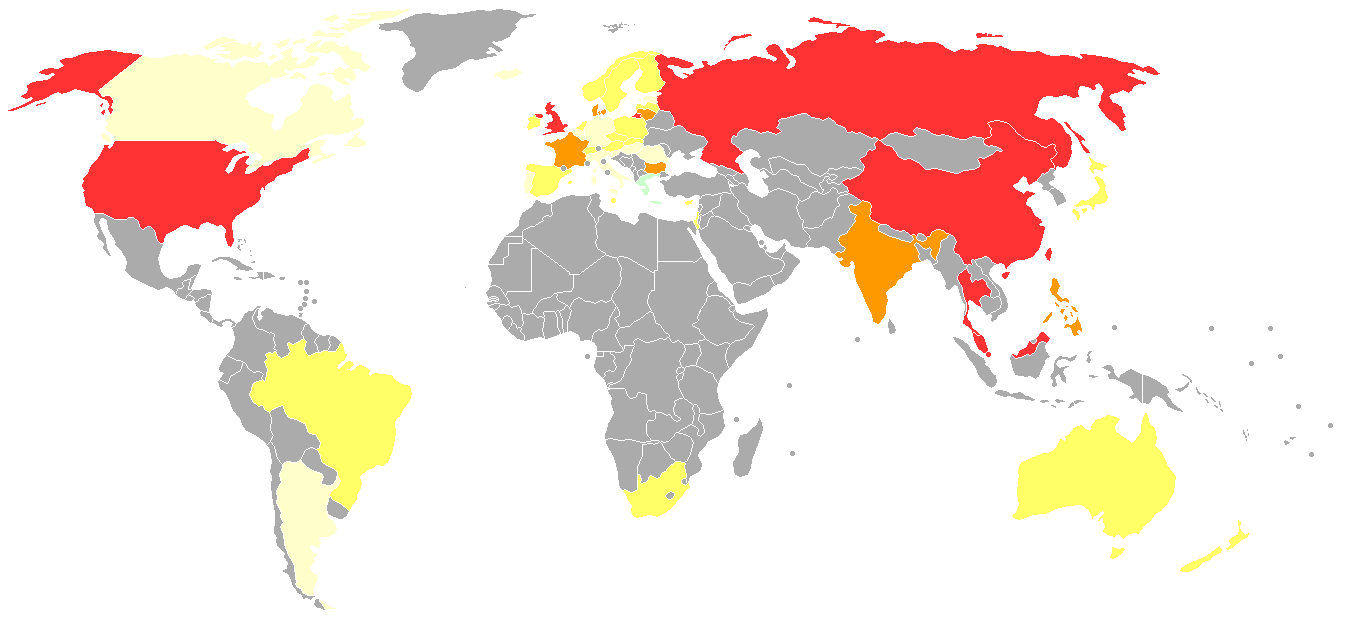In this article, I want to clarify some common misconceptions I keep seeing pop up on Reddit as well as popular privacy and VPN websites like Privacytools.io and BestVPN.com. These sites heavily favor EU-based providers and blatantly accuse US based VPN providers of being illegitimate or dangerous for your security.
What does a home base mean for a VPN company?
VPNs (virtual private networks) are great privacy tools that many individuals use to protect their data. Some users were set up their own VPNs, but a majority prefer to pay a small fee per month for a VPN provider that makes everything very easy with native clients (the best VPN providers also have mobile apps and browser extensions).
Each one of these VPN providers is a company, and each provider needs a home. This home is where they are based, and depending on that location, there are certain laws and policies that they have to follow. Still with me? Good.
Some VPN providers are based in the United States, some are founded in the UK, some elsewhere in Europe, and some are in Asia or other middle eastern countries.
Now, if you can understand that each one of these countries has different laws and regulations that could affect your privacy–you might be starting to think that choosing a VPN is going to be even more challenging than you might have thought.
After all, it’s hard enough to pick a good VPN based on their policies and features, regardless of the laws and regulations of the country they are based in. Does your prospective VPN log? Have good speeds? Support iOS?
Not only that, but a lot of websites are completely biased on which services they recommend based on their company location. Some websites just altogether shun US-based services, while promoting European services that are often even worse for personal privacy.
To understand which is the best jurisdiction, or best home for your VPN, we need to clear some things up first and explain why some arguments are not valid.
EVERY country has a spy agency that can serve legal process
One main argument I keep seeing against the United States VPN-based services is that the NSA’s Prism program has complete and utter control over VPN providers and thus the customers that use them.
However, what websites and people fail to mention, or just forget, is that every single country has a powerful spy agency or legal power that can serve a court order if criminal activity is being prosecuted. In fact, a majority of countries and their spy networks work together.
In essence, it’s not just the NSA spying on people, but other agencies active in other nations as well.
EU is anti-privacy
By failing to point out how aggressive the EU has been in the past, as is now– many websites are attempting to create a huge bias against US VPN companies. The European Court of Justice has a history with trying to pass important legislation that forces internet providers to store data for 12 months. Do you want to use a VPN provider that is hosted in a country has considered forced data retention schemes?
But just because this anti-privacy legislation didn’t go through in the directive, doesn’t mean that countries in Europe aren’t capable collecting data on internet users and companies. There is also no guarantee similar “big brother” laws may try to pass in the future. Romania is one good example of a country that is aching for the anti-privacy parliamentary law. Hungary has also successfully passed a data directive law that is active–requiring providers to hold logs up to twelve months. Hungary is home to BufferedVPN.
Here are some known countries in Europe that have existing data retention laws that apply to internet service providers:
- Estonia
- Finland
- Greece
- France
- Spain
- Italy (home to AirVPN)
- Lithuania
- Latvia
- Malta
- Portugal
Besides data retention, Europe has also been pushing for Google to block search results within Google. This advance is called “the right to be forgotten” which Google explains as “removal requests for all sorts of content: serious criminal records, embarrassing photos, instances of online bullying and name-calling, decades-old allegations, negative press stories, and more.
Google claimed that if it obliged to requests to remove search results, which it would have a negative effect on the free flow of information. But, due to pressure from European countries like France–Google has now relented and pushes censorship, or alteration, upon all European users accessing any form of Google.
While “the right to be forgotten” sounds harmless in theory, and it may not sound like the worse thing–consider the perspective that Europe is forcing a tech company to handle their data a certain way. Censorship is censorship.
Perhaps Europe decides that using a VPN is allowing users to bypass “the right to be forgotten.” Who’s to say if they don’t block VPNs next? Or just cut off Google altogether?
The USA has strong privacy laws and no requirement for data retention
A lot of people assume that a VPN company in the United States is held accountable and useless in the face of court orders– or that they have mandatory logs that they give up, or that they are under the whip of the NSA.
Truth be told, all of that is false.
First of all, the United States is doesn’t have ANY data retention laws. And it doesn’t have the history of trying to push legislation against privacy like Europe, Australia, or the UK.
In regards to DMCA requests–it’s not something you need to worry about. Some of the best US VPNs would respond to DMCA requests, but most of these don’t result in anything since they don’t store any logs or session data on their network. If you check out this list from TorrentFreak, note how some providers are listed on the top. Some websites claim this is because they are sponsored–when in fact it’s because they are the most popular and quite simply the best VPNs out there.
A lot of VPN providers claim they haven’t had one issue so far. Most top tier VPNs often use shared IP addresses, which makes it very hard to isolate single users making investigative reports useless.
Other VPNs in Europe claim that they don’t respond to DMCA requests, but that’s simply not true. These companies are just not being truthful since all VPNs are within the scope of copyright law, regardless of where they are based. Just because your VPN is based in Italy, doesn’t mean the police can’t force your VPN to follow the law of the land.
How to Choose a VPN the Right Way
When you’re considering a VPN, you should consider the jurisdiction and laws of that place more carefully than most sites let on. Don’t blindly pick a VPN since it’s based in Italy, since these countries often have corporate structures that are set up anonymously. Privacy laws might not be as strong as you imagined.
Instead, rely on solid factual reviews like ours, that rate VPNs based on a variety of factors that will provide you the best user experience for good speeds, solid application performance, fantastic customer support and no logging policies.
Check out this top 5 list we made if you need help deciding which VPN to use.
If you need help picking the right jurisdiction, or just have questions about VPNs, come on over to our forums.



